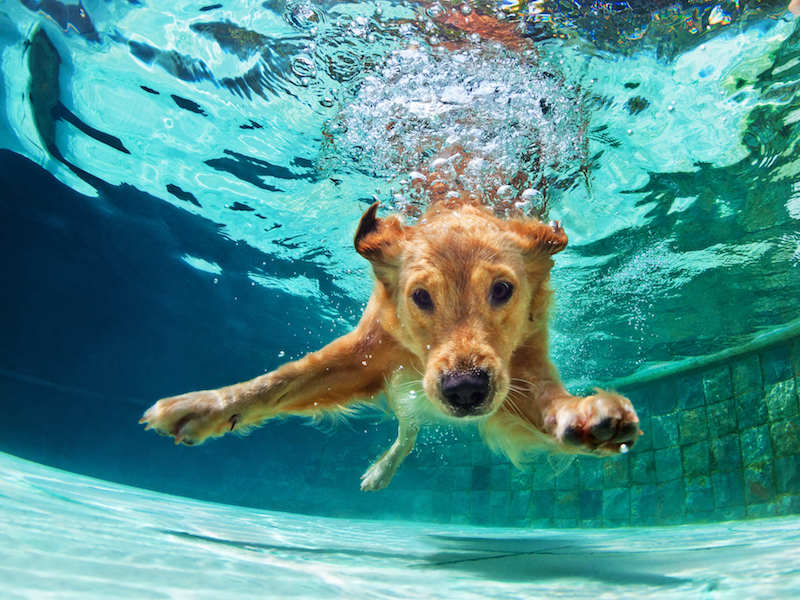There are a lot of different things that can ruin the delicate that makes a hearing aid function the way it does, but not many have the impact of water. In fact, you could call moisture kryptonite for hearing aids. Even if you already know that and take care to protect your investment from the shower, pool, or a good face washing, chances are you are missing the most common cause of water damage in hearing aids: humidity.
Moisture that you can’t see has the greatest chance of causing irreparable damage. It’s time to learn more about why humidity is a damaging thing for hearing aids.
Understanding Humidity
Even though the word humidity is very common, what does it really mean? PBS describes humidity as water molecules in the air. When displayed as a percentage, for example, the relative humidity is 40 percent today, it refers to the amount of water vapor in the air compared to what air could hold. When you can feel wetness in the air, that means the relative humidity is high.
People are very sensitive to humidity because sweat is the most efficient way to cool down the body. When you sweat it evaporates into the air, but that doesn’t happen as fast when the humidity level is high. Moisture and electronics don’t mix well and that includes hearing aids.
As A General Rule Electronic Devices Have a Hard Time Coping With Humidity
Too high or, too low, humidity can impact your hearing aids. When it’s too moist, the intricate electronics will accumulate condensation. When it’s overly dry things become more brittle.
Hearing aids depend heavily on internal electronics to work. Newer digital hearing aids use a state-of-the-art signal processing chip to control noise. It’s what is behind elegant functions like:
- Noise reduction
- Anti-feedback
- Targeted listening programs
- Digital sound streaming
Moisture can collect in the hearing aid when humidity is high and ruin that component. It can corrode elements inside the casing and destroy batteries as well. You might as well drop your hearing aid in a sink full of water, and the effect is the same.
Managing Humidity
Water resistant models are currently on the market. Having this feature doesn’t mean you can swim with your hearing aids in place, but it does provide some protection against humidity and other weather-related concerns such as getting caught in an unexpected rainstorm or even sweat when you work out.
If you live in a humid area, consider using a room or house dehumidifier to decrease water vapor inside. It’s not just your hearing aid that will benefit, there are health benefits, and other electronic devices in the home will also be protected. Dehumidifiers reduce the risk of mold, mildew and dust mites, so everyone breathes a little better, too. Although a house or room dehumidifier will help protect your hearing aids, it’s not enough. There are a few other things you can and should do.
Consider buying a dehumidifier designed especially for hearing aids. They come at all costs levels. Silica gel crystals in a drying kit are used to protect electronics. Moisture is eliminated by putting the hearing aids into the dehumidifier for a couple of hours. Drying your hearing aids as you sleep at night can be done using specially designed storage containers. In a pinch, you could use a bag of uncooked rice to remove moisture.
Get in the habit of opening the battery compartment every time you store your hearing aids. When you expose the battery and inner elements to air by leaving the door open, condensation can evaporate by itself. Don’t just do this in the summer, do it all year round.
Always store your hearing aids in a cool, dry place. Avoid putting them in the glove compartment, in a hot room or on a table in the sun.
Thinking Past Humidity
Air vapor is not the only moisture that can damage hearing aids. Don’t forget to think about other types of wetness like:
- Don’t touch your hearing aids with hands that are still moist from lotion.
- Find a safe place to store your hearing aids if headed for the pool or beach.
- Wear a sweatband when exercising. It’s a good practice whether you wear your hearing aids when you workout or not. Sweat in your ears can cause problems later.
- Check surfaces before you put your hearing aid down. You don’t want to place it in a wet spot left by a glass or coffee cup.
Your hearing aids are a valuable asset, so treat them that way. Consider how moisture and humidity can impact them and take steps to prevent water damage. If your hearing aid already has water damage make an appointment for service with a hearing aid specialist.

